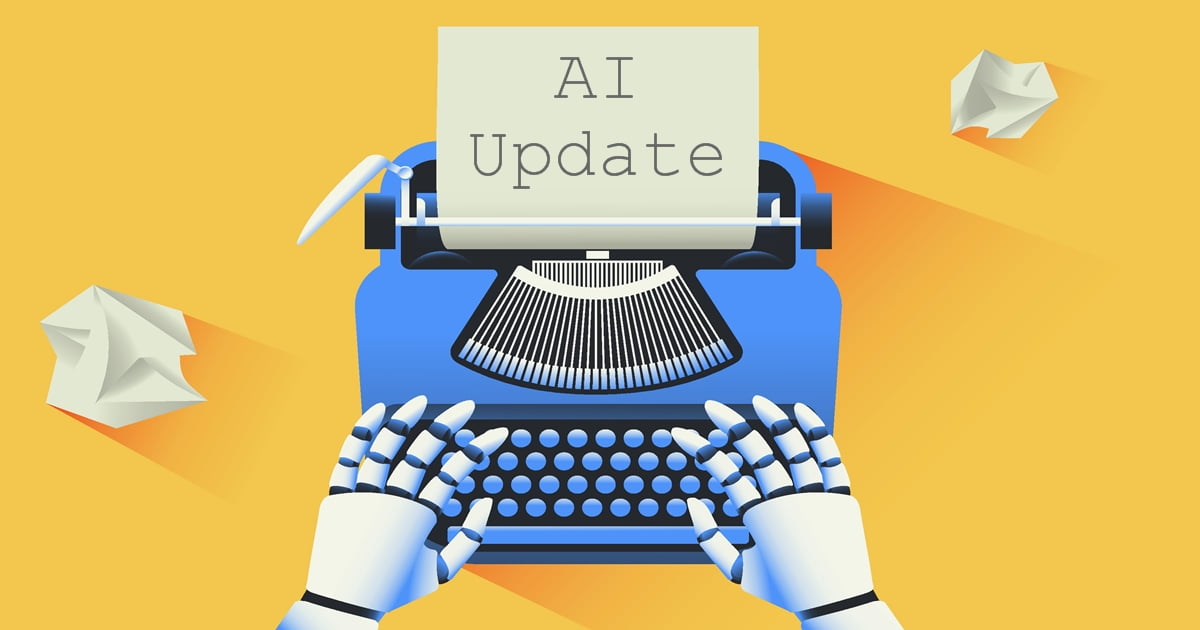AI Update, February 28, 2025: AI News and Views From the Past Week

```html
The AI Revolution: A Week of Groundbreaking Developments
Giant Leaps in Generative AI
The AI landscape is evolving at breakneck speed, with major players like OpenAI, Microsoft, and Amazon pushing the boundaries of what's possible. OpenAI's latest model, GPT-4.5, promises enhanced accuracy and a more natural conversational flow, paving the way for more reliable AI-generated content and customer interactions.
Not to be outdone, Microsoft expanded its Phi model lineup with Phi-4-mini, designed for mobile devices, and the multimodal Phi-4-multimodal, capable of processing text, images, audio, and video. These models offer marketers exciting new opportunities for content creation and analysis, enhancing automation and multimodal engagement.
Amazon, meanwhile, has unveiled Alexa+, a generative AI-powered overhaul of its voice assistant. This update aims to deliver a more personalized and automated user experience, opening doors for personalized advertising, conversational commerce, and deeper brand engagement.
Open Source and the Democratization of AI
Alibaba is making waves with its open-source video and image-generating AI model, Wan 2.1. This move empowers brands to create engaging video-based marketing campaigns without relying on proprietary tools. Similarly, Anthropic's Claude 3.7 Sonnet offers a unique hybrid approach, allowing users to control its reasoning depth and balance cost against output quality.
The Rise of AI-Powered Search and Research
Perplexity's Comet browser aims to redefine how we interact with online information, integrating generative AI for enhanced search and research capabilities. This could significantly impact search marketing, requiring brands to adapt their SEO strategies.
You.com's ARI, an AI research agent designed for regulated industries, promises to streamline research by synthesizing data from over 400 sources. This tool could revolutionize market intelligence, trend analysis, and competitive research for marketers.
Even Google is getting in on the action, expanding Gemini Deep Research to Workspace, providing businesses with powerful AI-driven research tools to enhance data-driven decision-making.
AI and the Future of Human-Computer Interaction
Microsoft Copilot is becoming even more accessible with free access to its Voice and Think Deeper features. This move empowers users with hands-free interaction and advanced analytical capabilities, potentially transforming customer interactions and content strategy.
Apple, often seen as lagging in the AI race, is reportedly considering integrating Google's Gemini into Apple Intelligence, signaling a potential shift in its AI strategy. This could lead to enhanced personalization and automation on Apple devices, impacting mobile marketing and app-based engagement.
Looking even further ahead, Apple's plans to integrate AI features into its Vision Pro headset opens exciting possibilities for immersive marketing and interactive storytelling in augmented and mixed reality.
Navigating the Ethical and Legal Landscape of AI
The rapid advancement of AI brings with it important ethical and legal considerations. The silent protest album, "Is This What We Want?", highlights the concerns of musicians regarding AI copyright rules and the use of copyrighted material for AI training. Meanwhile, xAI's Grok chatbot has sparked controversy over its handling of misinformation, reminding us of the ongoing challenges of AI-generated content moderation and bias.
The increasing dominance of Chinese AI companies like DeepSeek also raises questions about the global AI landscape and the need for marketers to stay informed about developments in this rapidly evolving field.
As AI continues to reshape industries and redefine how we interact with technology, it's crucial for marketers to stay informed, adapt, and embrace the opportunities this transformative technology offers.
The Legacy of Steve Jobs in the Age of AI
The rise of AI challenges Steve Jobs' product development philosophy, which emphasized understanding customer needs through intuition and time. Now, AI allows for rapid analysis of vast datasets, accelerating product creation. However, the human element of creativity remains paramount, reminding us that AI should augment, not replace, human ingenuity.